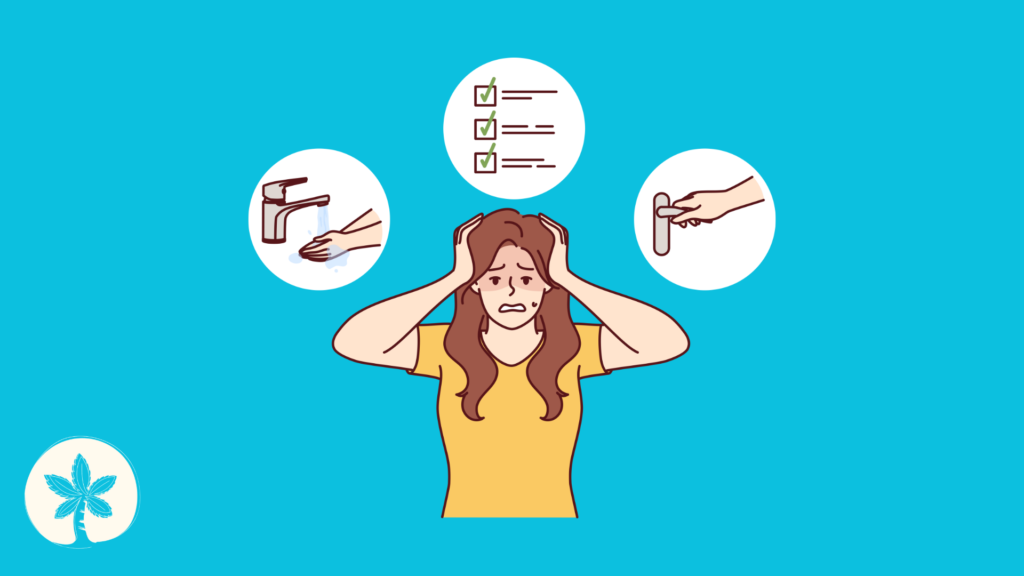Breaking the Silence: Addressing High-Functioning Anxiety and How Therapy Can Help You Thrive
IntroductionHigh-functioning anxiety is a mental health condition that often goes undetected. People with high-functioning anxiety might appear to “have it all together,” managing work, social life, and responsibilities without apparent struggles. However, beneath the surface, they can experience intense worry, perfectionism, and an ongoing sense of fear or inadequacy. Because these individuals often seem so successful and composed, high-functioning anxiety can be challenging to identify and, consequently, to treat. At Saname Counseling in McAllen, Texas, we understand the complexities of high-functioning anxiety. Our dedicated team of therapists provides compassionate support for individuals dealing with anxiety disorders, offering tools to help them manage their symptoms and lead more balanced lives. In this article, we’ll discuss what high-functioning anxiety is, why it’s often overlooked, and how therapy can make a difference. What is High-Functioning Anxiety?High-functioning anxiety differs from more commonly recognized forms of anxiety in that it doesn’t necessarily interfere with day-to-day productivity. Instead, individuals may use their anxiety to push themselves harder, achieving more while hiding their struggles. While high-functioning anxiety isn’t an official clinical diagnosis, it is a term often used to describe people who experience symptoms like: While these symptoms may not seem as severe as those found in generalized anxiety disorder (GAD) or panic disorder, they are still distressing. High-functioning anxiety can prevent individuals from fully enjoying life, causing burnout, strained relationships, and physical health issues if left unaddressed. Why High-Functioning Anxiety Often Goes UnnoticedBecause people with high-functioning anxiety are often very accomplished, they may not see their anxiety as an issue. Society frequently rewards traits like perfectionism and high achievement, making it difficult for these individuals to recognize that their anxiety is taking a toll. Additionally, friends and family members may not realize that their loved one is struggling, as they may appear calm and collected on the outside. High-functioning anxiety can also go undiagnosed because those experiencing it may not meet the criteria for more severe anxiety disorders. However, just because someone appears to be “functioning” does not mean they aren’t suffering. Therapy can help individuals with high-functioning anxiety uncover and address these hidden struggles, allowing them to thrive without the constant pressure of perfectionism and fear. The Impact of High-Functioning Anxiety on Personal and Professional LifeHigh-functioning anxiety can impact every area of life, even if it’s not immediately visible. In their professional lives, individuals may experience burnout, perfectionism, and an inability to set boundaries, leading to chronic stress and even health issues. In their personal lives, they may find it challenging to relax, connect emotionally with others, or maintain a positive self-image. Without intervention, the pressure to keep up with unrealistic expectations can lead to increased anxiety, depression, and physical health problems over time. Therapy can be a lifeline, providing guidance and support to manage symptoms and create a healthier, more fulfilling life. How Therapy Supports Those with High-Functioning AnxietyTherapy is incredibly effective for managing high-functioning anxiety. Counseling can provide a range of techniques and strategies to help individuals cope with anxiety in a healthier way, including: 1. Cognitive-Behavioral Therapy (CBT) CBT is one of the most effective treatments for anxiety, including high-functioning anxiety. In CBT, clients work to identify and change thought patterns that contribute to their anxious feelings. By learning to challenge negative or unproductive thoughts, individuals can reduce their anxiety and improve their self-esteem. CBT also focuses on behavior modification, helping clients to break patterns like perfectionism and overworking. Through guided exercises and real-world practice, individuals learn to set realistic goals, manage their time effectively, and stop relying on anxiety as a motivator. 2. Mindfulness and Relaxation Techniques Mindfulness is another valuable tool in treating high-functioning anxiety. It teaches clients to focus on the present moment, reducing the time spent dwelling on past mistakes or worrying about future outcomes. Therapists at Saname Counseling often incorporate mindfulness practices, such as deep breathing, meditation, and progressive muscle relaxation, to help clients learn how to calm their minds and bodies in moments of stress. These techniques also help individuals recognize when their anxiety is escalating, giving them tools to prevent their emotions from spiraling out of control. Regular practice of mindfulness can significantly reduce overall anxiety levels and increase one’s ability to cope with challenging situations. 3. Eye Movement Desensitization and Reprocessing (EMDR) EMDR is a therapy often used for trauma, but it can also be effective for those with high-functioning anxiety, particularly if their anxiety stems from past experiences or deep-seated fears. EMDR works by helping clients reprocess painful or distressing memories, reducing their emotional impact. For those with high-functioning anxiety, EMDR can address underlying fears of failure or rejection that contribute to their anxiety. 4. Developing Healthier Habits and Boundaries Therapy also provides individuals with tools for managing their time, setting boundaries, and creating healthier work-life balance habits. Learning to say “no” to unnecessary tasks, delegating responsibilities, and creating a manageable schedule are critical skills for those with high-functioning anxiety. Through therapy, individuals also learn self-care practices that support their mental health. This includes finding hobbies they enjoy, making time for relaxation, and fostering healthy relationships. How Saname Counseling Can Help: Our Approach to Anxiety ManagementAt Saname Counseling, we understand the unique challenges that come with high-functioning anxiety. Our team of compassionate therapists provides a safe and supportive environment where individuals can explore their anxiety, learn new skills, and find relief. We work closely with clients to develop personalized treatment plans that address their specific needs and goals. Our approach to anxiety management includes a combination of cognitive-behavioral therapy, mindfulness techniques, and EMDR, as well as practical strategies for setting boundaries and managing stress. We believe that with the right tools and support, individuals can reduce their anxiety and find balance without sacrificing their ambitions or success. Success Stories: Finding Balance and Inner PeaceOne of the most rewarding aspects of our work at Saname Counseling is witnessing the transformation of clients who struggle with high-functioning anxiety. For many individuals, therapy is the first time they’ve been able to talk openly about their









